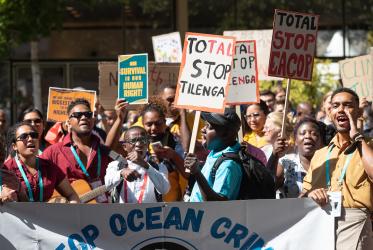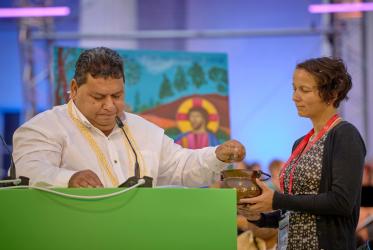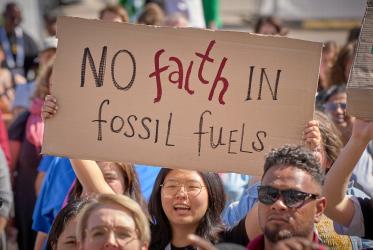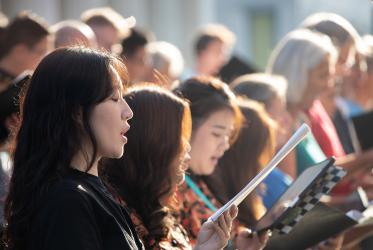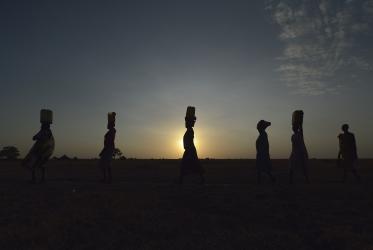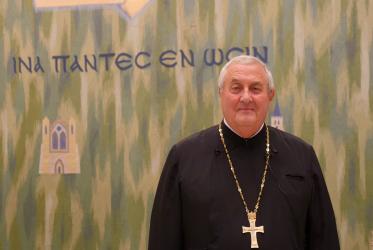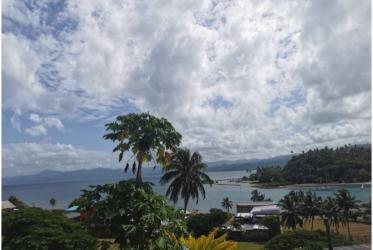Displaying 81 - 100 of 159
07 September 2022
Multireligiöser Einsatz für das Klima: Nicht wirklich mehr viel Zeit
07 September 2022
Multifaith advocacy for the climate: Not really much time left
04 September 2022
Junge Menschen fordern Klimagerechtigkeit
04 September 2022
Gottes Schöpfung wird durch das Sammeln von Wasser gefeiert
03 September 2022
Youth demand climate justice
03 September 2022
God’s Creation is celebrated in a gathering of waters
01 September 2022
Care for Creation: Decades of ecumenical advocacy
01 September 2022
Called to Transformation - Ecumenical Diakonia
09 June 2022

